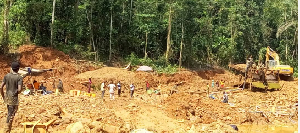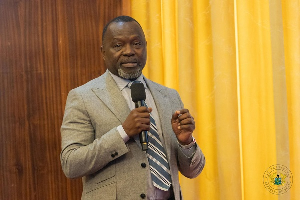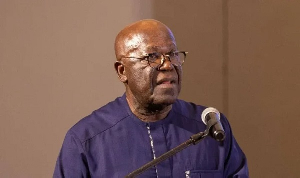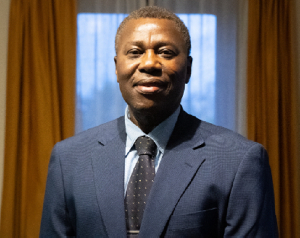My heart bleeds for Ghana. It bleeds for the rivers that once ran clear, now choked with mud and toxic chemicals. It bleeds for the forests that once stood tall, now reduced to barren wastelands.
It also bleeds for future generations who may never know the beauty of a Ghana untainted by the ravages of illegal mining. High-Tech Galamsey (HTG), like armed robbery, is a crime against the nation, a crime against humanity, and a crime against the very soul of our land. It cannot be allowed to flourish.
Galamsey, the illegal mining of gold, has long been a scourge on Ghana’s environment. But the advent of HTG has taken this crisis to a terrifying new level. Armed with excavators, bulldozers, and sophisticated machinery, these modern-day environmental criminals are wreaking havoc on a scale previously unimaginable.
The galamseyers are not just digging for gold; they are digging the graves of our nation’s future. Forests are being flattened, farmlands destroyed, and rivers poisoned with mercury and cyanide. The very lifeblood of our communities—our water, our soil, our air—is being poisoned, and the consequences are dire.
The comparison of the HTG phenomenon to armed robbery is not an exaggeration. Just as armed robbers steal from individuals, leaving trauma and loss in their wake, HTG steals from the nation, robbing us of our natural heritage and leaving behind a legacy of destruction. Armed robbers may instantly take lives, but HTG operations kill slowly, and insidiously, poisoning entire ecosystems and communities over time.
The HTG phenomenon is a crime that affects not just the present but the future, condemning our children and grandchildren to a Ghana stripped of its natural wealth and beauty.
The human cost of HTG is equally devastating. Farmers are losing their livelihoods as fertile lands are turned into desolate pits. Fishermen are watching their catches dwindle as rivers die. Communities are being torn apart by the lure of quick money and the violence that often accompanies illegal mining operations. The social fabric of our nation is fraying under the weight of this environmental and moral crisis.
But there is hope. Just as Ghana has fought armed robbery with determination and resolve, so can we fight HTG operations, too. It begins with collective recognition that this is not just an environmental issue but a national emergency.
We must demand stronger enforcement of existing laws, harsher penalties for those involved, and greater accountability for those who enable this destruction, whether through corruption or complicity.
We must also invest in sustainable alternatives for those who turn to galamsey out of desperation, providing them with viable livelihoods that do not come at the expense of our environment.
Above all, we must awaken to the urgency of this moment. The fight against HTG is not just a fight for today; it is a fight for tomorrow. It is a fight for Ghana we want to leave for our children—a Ghana where rivers run clear, forests thrive, and the land is a source of life, not death.
My heart bleeds for Ghana on the HTG menace, but it also beats with hope. Hope that we will rise to this challenge, that we will say “Enough is enough,” and that we will reclaim our land from the grip of this environmental cancer.
The time to act is now. HTG activities, like armed robbery, cannot be allowed to flourish. For the sake of Ghana and the generations to come, it must stop immediately.
Opinions of Wednesday, 26 March 2025
Columnist: Dr John-Baptist Naah















